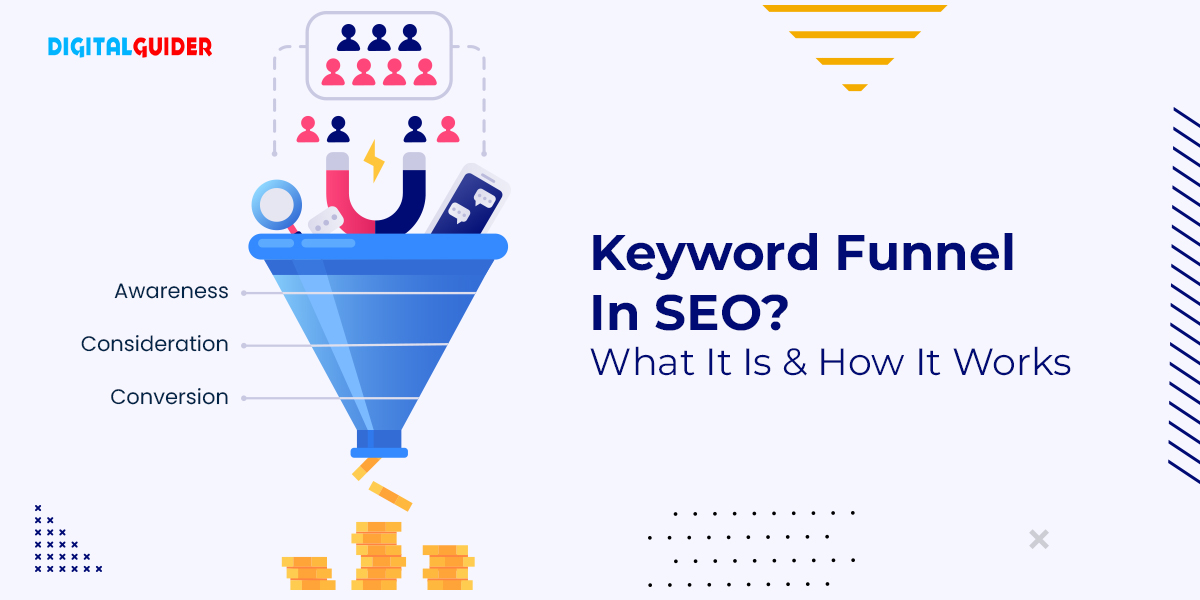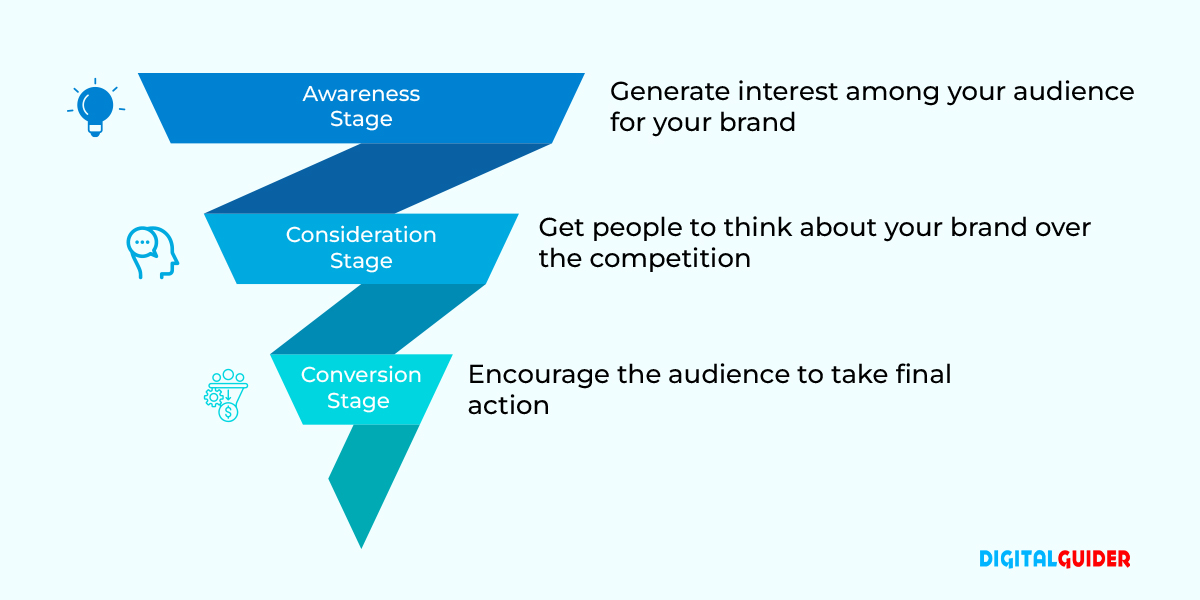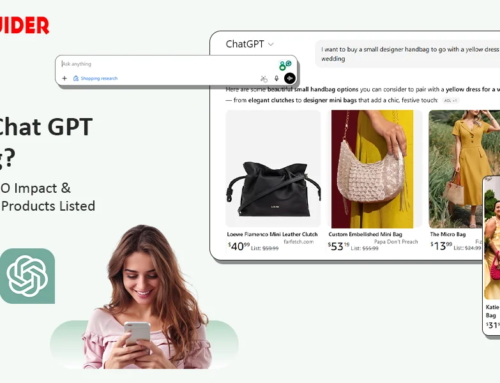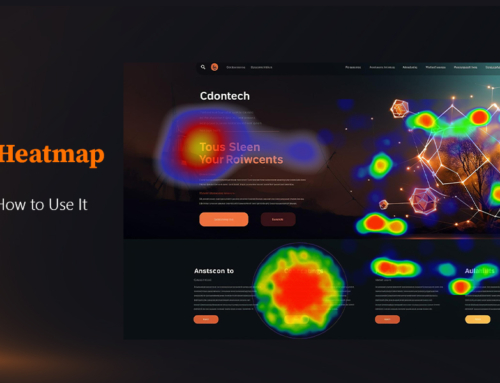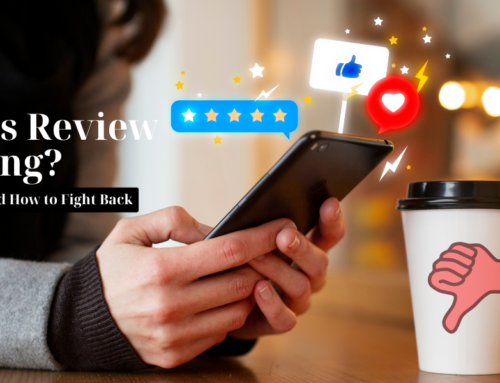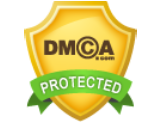keyword Do you produce a lot of high-quality content that is informative and helpful, yet it doesn’t increase your conversion rate? Keyword research can give excellent insight into customer problems, needs, desires, and intent.
In the case of users’ buying journey, it is crucial to understand what keywords your potential customers use for their search queries in search engines and the intent behind a user’s query. Doing keyword research the right way & categorizing them help you be aware of the buyer’s journey.
This blog will dive into the proven details on what is keyword funnel in SEO, how to create funnel content that converts and ranks high on SERPs of search engines like Google.
What Is the Buyer’s Journey?
Before moving to the concept of keyword funnel, we must understand the buyer’s journey. Basically, it describes a buyer’s path to purchase. In other words, buyers don’t just wake up and suddenly decide to buy a particular item. Your target audience goes through a specific process to become aware of, consider, and decide whether to purchase that new product or service.
What Is a Keyword Funnel?
A keyword funnel is a strategic approach to optimizing the content of a buyer’s journey for search engines. It involves categorizing user keyword searches based on the stages of a user’s purchase journey or purchase funnel.
The goal is to organize the keywords based on popular search volume terms as part of a strategic keyword research technique.
The keyword funneling technique helps identify the search terms people use to search for information on a particular topic. By including these terms strategically in your content, you can enhance your chances of appearing on top of the search engine results page or SERP features like Google Knowledge Graph, Google Popular Products, People Also Ask (PAA), and Featured Snippets.
For instance, “shoes” is a generic keyword that you can narrow down to “women’s black shoes” and get even more specific with “women’s size 8 black Nike Jordans”. These searches help you understand what a user is looking for. All three of these searches indicate that the user is at a different point in their buying journey.
6 Benefits of Keyword Funnel Strategy
Enhance content marketing efforts
Keywords are vital in making your content marketing efforts successful. With the help of a strategic keyword funnel, you can create business blogs, videos, podcasts, engaging infographics, social media posts, etc., that guide the users from the initial to the final step of the buying journey.
Building brand awareness
Top brands invest heavily in brand awareness, and the effective keyword funnel strategy helps build their brand. Keyword optimization strategy familiarizes a large audience with the brand for their search query in their buying journey. When your brand ranks higher on Google SERP 1st page, it helps build brand image and increase brand awareness.
Rank higher on SERP
The search engine result page ranking depends significantly on proper keyword research and optimization. Thus, the keyword funnel helps you find the right keywords to rank for the relevant queries of the users used at different stages. So you can rank high on Google’s 1st page or SERP features like people also ask box, featured snippets, etc.
Lead generation
One of the primary motives of the keyword funnel strategy is lead generation, and yes, it works best. The number of leads you get depends on how you categorize and optimize keywords stage-wise. It becomes crucial for your business to focus on the marketing funnel stages and keyword funnel.
Link-building opportunities
Whether internal or external linking, it’s a well-known term among digital marketers because it allows you to connect the internet content to your content and give your audience a great user experience and more resources to discover.
It also allows you to build links, get backlinks from other approved websites, etc., so that Google bots can easily crawl & index your site.
Getting more conversions
A keyword funnel strategy is one of the most effective ways to generate conversions that convert visitors into paying customers. A keyword funnel strategy can help you generate organic leads and convert them into paying customers, making your SEO keywords strategy successful.
What are the Stages Of The Keyword Funnel?
Most buyers go through different processes and stages before purchasing a product or service. The keyword funnel includes multiple searches until they reach the conversion point. A consumer’s search query varies by the stage of the buying decision process they are in.
The process starts with a need or wants, followed by research and information gathering, then considering their options in the marketplace before finally deciding to purchase the product or service.
The keywords can be categorized into three buyer’s purchase process stages.
- Awareness
- Consideration
- Conversion

– Top of Funnel: Awareness Stage
When users are aware of their needs and seek information or research for a helpful solution, it is said that they are in the awareness stage. This stage is all about building brand and product awareness.
Customers’ journey from encountering your brand to conversion begins in this stage. The initial broad search keyword means they are in the initial “research” or “awareness” stage.
It is the stage where a customer wants a particular service or feature and becomes aware of the various products or services available. Then, they begin to research the best products or services at a budget-friendly price.
People in the awareness stage often use “issue or opportunity” terms and informational queries when searching for general information.
These keywords can be broad or specific. They correlate to research for a problem or provide good information for your target persona.
As you can see in the example below, you are getting results for informational keywords or queries in the awareness stage.
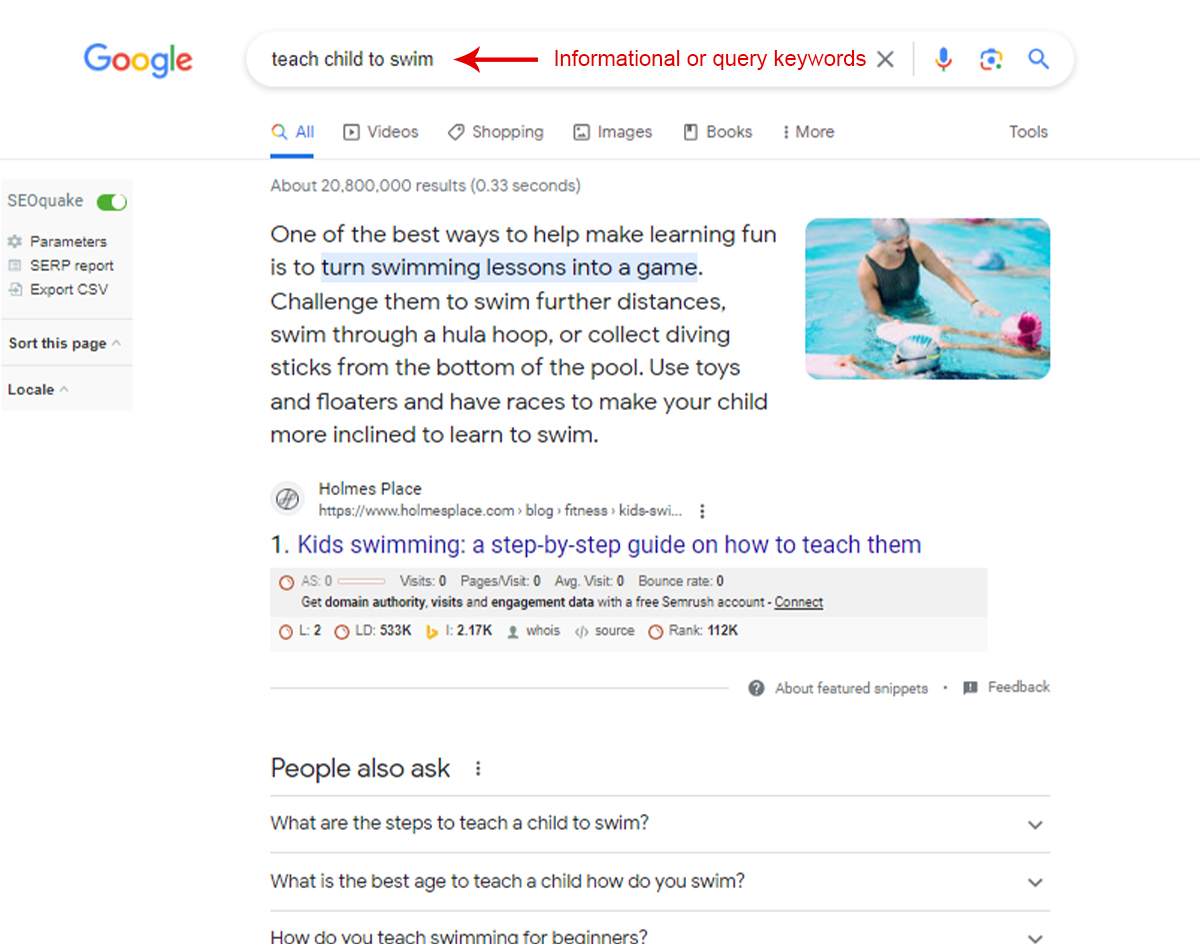
Moreover, you can see the other awareness stage keywords people use to get more information & more to the consideration stage.
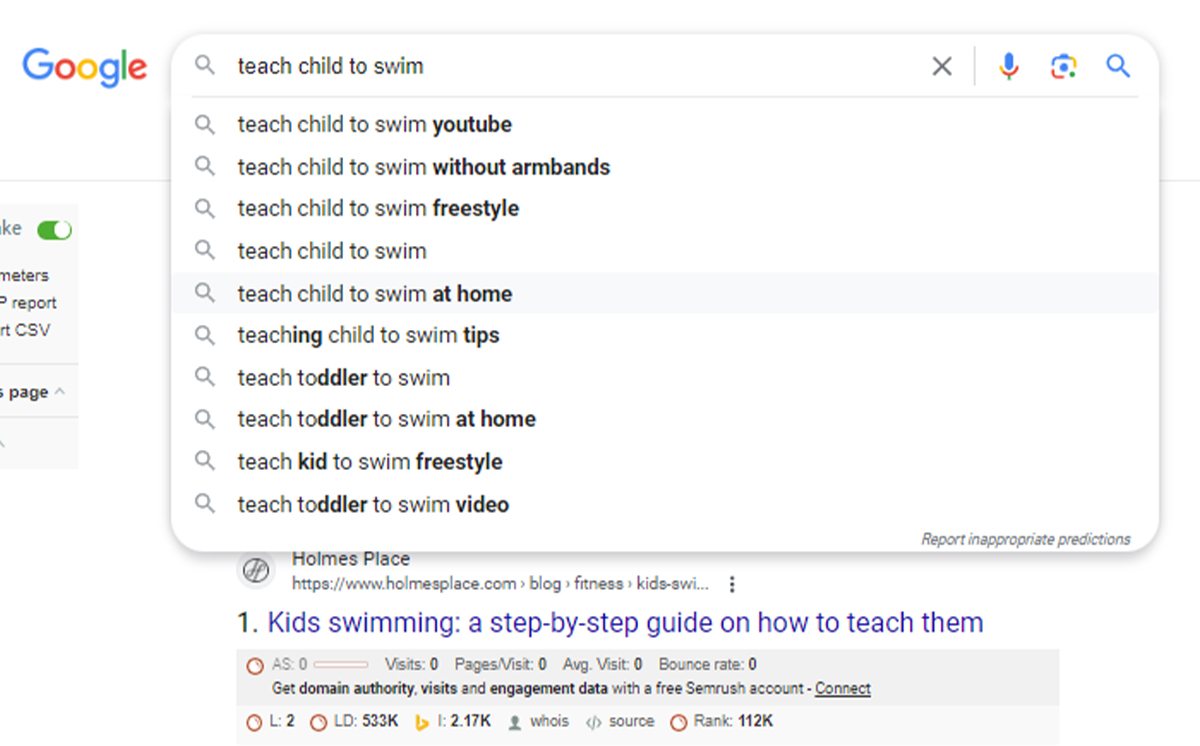
– Middle of Funnel: Consideration Stage
People in the consideration stage are now looking for options. People actively search for solutions to their problems, although they are not taking action to purchase the products or services.
The buyer moves from the research phase to considering potential solutions and evaluating their options. As you can see in the example below, customers are getting results for queries in the consideration stage.
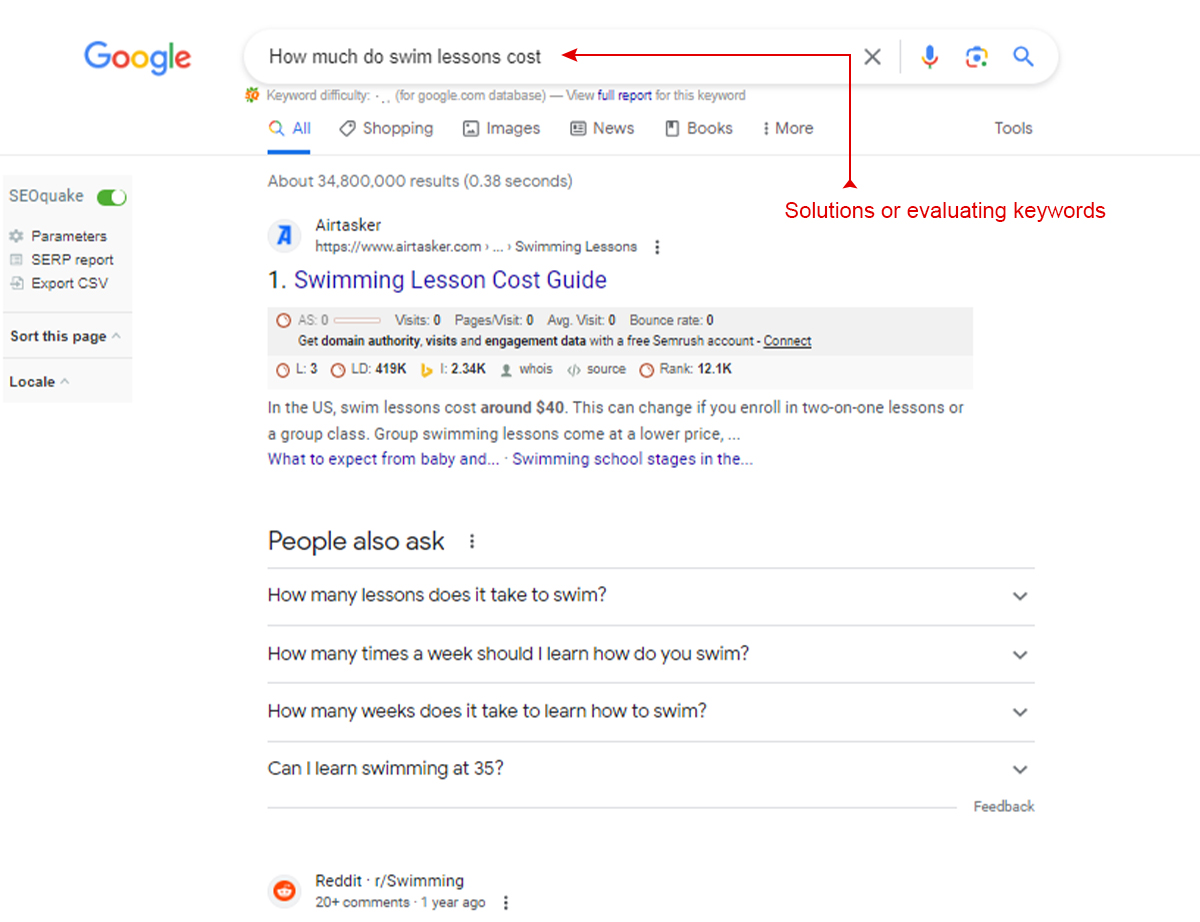
Moreover, you can see the other consideration stage keywords people use to analyze or evaluate the decision. Targeting the users in this stage is crucial as they are very close to the conversion.
Solution-type terms are popular and frequently used in this stage by users. It is like visiting the market, asking about the product and its prices, and comparing it with another.
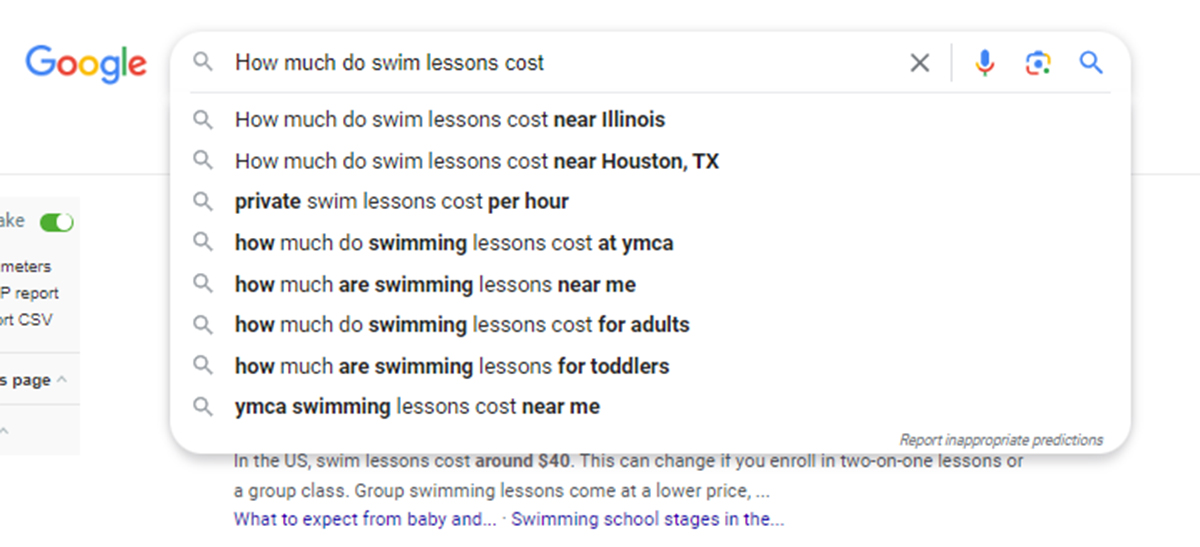
Users then examine your website, cost, product & service description, customer reviews, and social media. They compare alternatives or interpret third-party reviews from many choices for the products or services they seek.
Customers who have reached this stage are valuable for your business as they are possibly ready to purchase something your business offers.
– Bottom of Funnel: Conversion Stage
After the consideration stage, there comes a conversion stage where a user is about to confirm the purchase for the specific product or service after the final review, benchmarks, or tests. This stage is also known as the decision/action stage.
It’s all about giving prospects a reason to take final action, buy your product, sign up for your brand service, or take any other action you desire.
As your prospects move through the consideration phase, they find the solution and are usually ready to purchase a product & service.
As you can see in the example below, you are getting results for queries in the conversion stage.
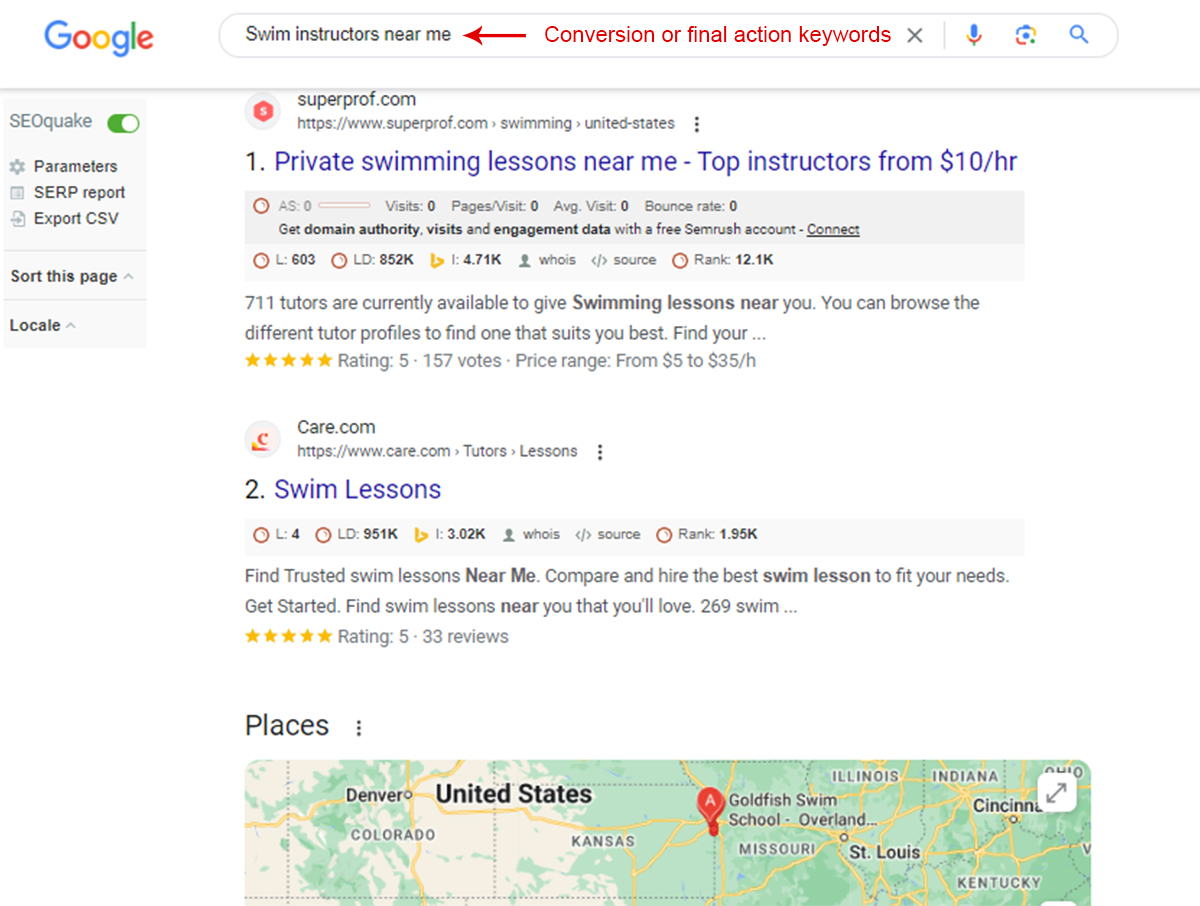
Moreover, you can see the other conversion stage keywords people use to analyze and take the final action.
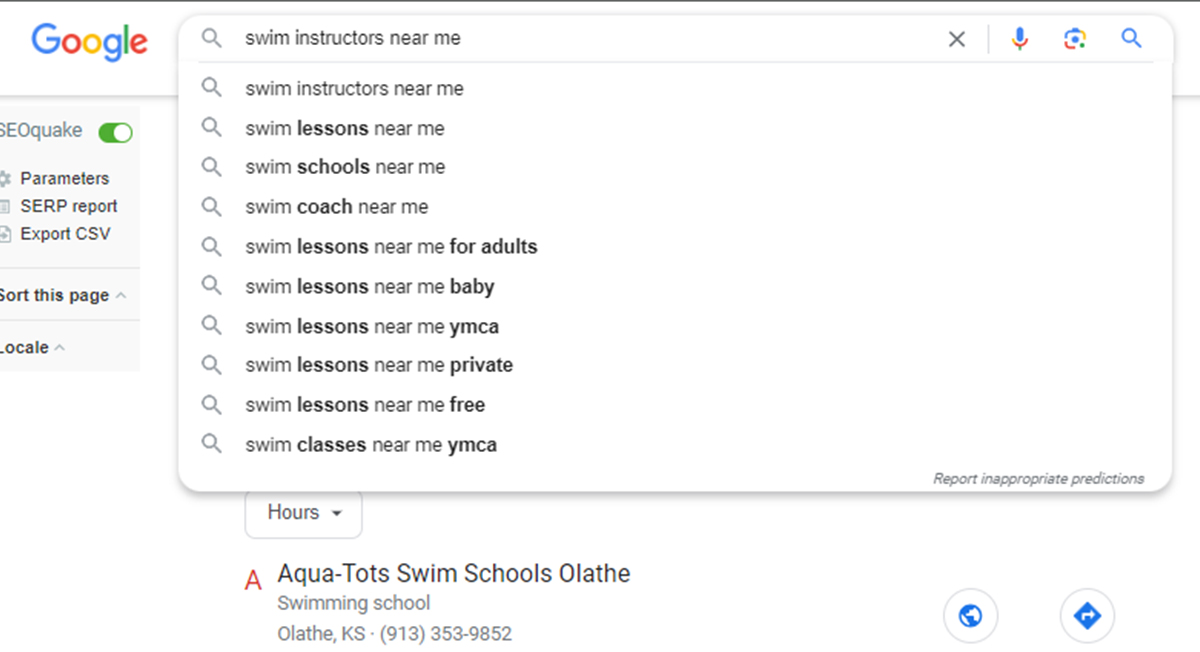
These query searches or long-tail keywords show the user knows what they want and firmly intend to buy. The goal at this stage is to take the relationship to a mutually satisfying closed sale.
Conclusion: Leverage The Power Of Keyword Funnel
For maximum leads and conversations, digital marketers need to pay more attention to the marketing funnel stages and keyword funnel as a part of their marketing strategy. The secret to a successful funnel is knowing your customers.
A retailer or business must understand a buyer’s buying journey and target them at each stage of the funnel. The keyword funnels guide prospects through each phase of the buyer’s journey. Building a better keyword funnel allows you to optimize your campaign strategies to drive conversions. Apply this funnel strategy now & level up your brand awareness & sales.
